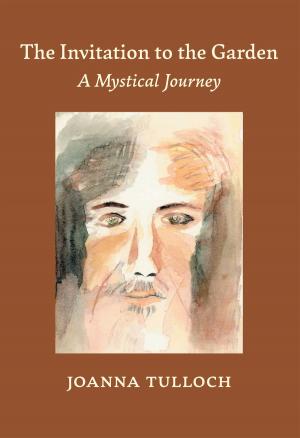Love Well The Hour
The Life of Lady Colin Campbell (1857-1911)
Biography & Memoir, Political, Historical| Author: | Anne Jordan | ISBN: | 9781848769304 |
| Publisher: | Troubador Publishing Ltd | Publication: | December 1, 2010 |
| Imprint: | Matador | Language: | English |
| Author: | Anne Jordan |
| ISBN: | 9781848769304 |
| Publisher: | Troubador Publishing Ltd |
| Publication: | December 1, 2010 |
| Imprint: | Matador |
| Language: | English |
Lady Colin Campbell was born Gertrude Elizabeth Blood in May 1857. She enjoyed a liberal upbringing for the day, and developed into an intelligent, artistic and beautiful young woman. In October 1880 she met Lord Colin Campbell, MP and youngest son of the 8th Duke of Argyll. Within three days they were engaged and, despite his family's objections, they married the following year. Gertrude was launched into an elevated social circle where she enjoyed the company of royalty, eminent politicians and famxous names of the day. But all was not well at home, as the couple's incompatibility became glaringly apparent. The marriage broke down and ended up in the dreaded divorce courts. Lord Colin Campbell accused his wife of adultery with four co-respondents and scandalised society with such a suggestion. After the trial, the couple went their separate ways. Gertrude slowly created a new life for herself as a journalist. Although shunned by much of society, her beauty, intelligence and wit were welcome in the more liberal circles of artists and writers. She was a close friend of the artist and dandy Whistler, and knew the Burne-Jones's. George Bernard Shaw listened to her advice on his early work, and remained a life-long friend, and Henry James used to visit her. But she had her enemies. She exchanged insults with Oscar Wilde, and was disliked by the notorious editor and newspaper proprietor Frank Harris. In her articles Gertrude advocated ideas such as bicycle lanes on roads, cremation as an alternative to burial and equal smoking rights for women. When many in her place would have quietly retired to the country, or found refuge in their nerves, she carved herself a career, threw herself into her sports, and created a new life as an independent woman. Yet little is known of her today; the few references cruelly describe her as a “sex goddess” or “houri”. Anne Jordan’s biography aims to redress the balance and give her life a full and fair hearing. This book tells the story of one of the most gifted women of her day and will appeal to readers interested in history and feminism.
Lady Colin Campbell was born Gertrude Elizabeth Blood in May 1857. She enjoyed a liberal upbringing for the day, and developed into an intelligent, artistic and beautiful young woman. In October 1880 she met Lord Colin Campbell, MP and youngest son of the 8th Duke of Argyll. Within three days they were engaged and, despite his family's objections, they married the following year. Gertrude was launched into an elevated social circle where she enjoyed the company of royalty, eminent politicians and famxous names of the day. But all was not well at home, as the couple's incompatibility became glaringly apparent. The marriage broke down and ended up in the dreaded divorce courts. Lord Colin Campbell accused his wife of adultery with four co-respondents and scandalised society with such a suggestion. After the trial, the couple went their separate ways. Gertrude slowly created a new life for herself as a journalist. Although shunned by much of society, her beauty, intelligence and wit were welcome in the more liberal circles of artists and writers. She was a close friend of the artist and dandy Whistler, and knew the Burne-Jones's. George Bernard Shaw listened to her advice on his early work, and remained a life-long friend, and Henry James used to visit her. But she had her enemies. She exchanged insults with Oscar Wilde, and was disliked by the notorious editor and newspaper proprietor Frank Harris. In her articles Gertrude advocated ideas such as bicycle lanes on roads, cremation as an alternative to burial and equal smoking rights for women. When many in her place would have quietly retired to the country, or found refuge in their nerves, she carved herself a career, threw herself into her sports, and created a new life as an independent woman. Yet little is known of her today; the few references cruelly describe her as a “sex goddess” or “houri”. Anne Jordan’s biography aims to redress the balance and give her life a full and fair hearing. This book tells the story of one of the most gifted women of her day and will appeal to readers interested in history and feminism.















